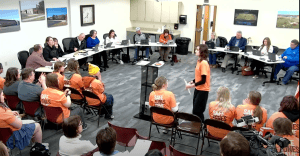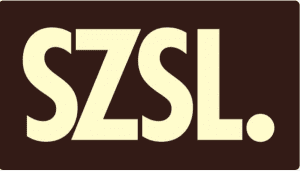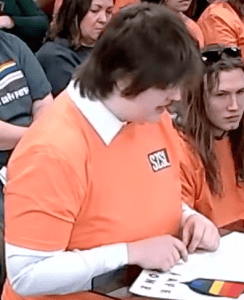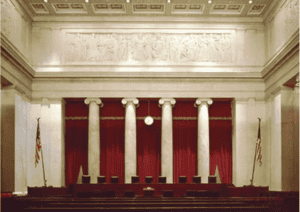The USD 368 Paola school board policy of removing non-instructional posters inside school property drew protests from supporters of the LGBTQ community at a recent school board meeting.

At the center of the controversy are “SZSL” posters featuring the acronym “Safe Zones Save Lives.” The posters were distributed around the school, indicating areas where LGBTQ students could gather to avoid what they considered harassment.

The policy, as provided to The Sentinel by board member Samantha Poetter-Parshall, states:
Materials displayed in and around a classroom are generally considered instructional materials and must comply with board policy. They may be selected by the classroom teacher but should be grade-level appropriate and align with the subject-matter being taught. Materials or displays not meeting these criteria are subject to removal by the principal.
Classrooms are not public forums for the display or distribution of political, religious, or personal viewpoints. Employees may not use classrooms for the posting or display of materials to promote or convey a political, religious, or personal message.
This policy does not require a principal to remove photos, decorations, or other personal items from a teacher’s desk or surrounding area as long as the items do not disrupt the learning process.

Opponents, wearing “Safe Zones Save Lives” orange T-shirts, countered the sign ban was discriminatory and reduced protections for the LGBTQ community.
Opponent and recent Paola High School graduate Kenlie Matthews told the board the sign issue was a matter of a feeling of well-being:
“Those signs had a direct impact on me and my feeling of comfort and safety while attending school. The signs were never really talked about; it was never a class announcement of ‘gay acceptance.’ It was simply a sign for those who needed to find solace in a silent reminder that they were safe.”
Paola parent Matt Blackie questioned the implication of the sign message:

“The idea of safe zones implies there are areas of our school that are unsafe.”
Paola Board Member Poetter-Parshall offered this statement to The Sentinel:
“The original discussion that led to the removal occurred during executive session, and normally, I would not discuss that, but it is clear that the Board President (Michelle Latto) has been spreading ideologically fueled false narratives aimed at disparaging the motives of another board member as to why the signs were removed.
“The topic of implementing board policy was brought up during discussion regarding the superintendent evaluation, which was appropriate considering the context since this is part of the job description for a superintendent.
We asked Paola Board Member Poetter-Parshall if the policy will be reconsidered later this year:
“As for adding it to be discussed at the next meeting, there was no motion to add it to the agenda for next meeting, but that doesn’t mean a board member can’t request it between now and then. That said, I see that being unlikely.

“Mainly because the United States Supreme Court ruled in Garcetti v. Ceballos (2006) that government employees, including teachers, are not speaking as private citizens while performing their job duties.
“Regardless of whether the signs are in fact considered “political”, which is an entirely different debate, they do not align with the curriculum.
Poetter-Parshall also commented on the First Amendment implications of removing non-instructional signs.
“The biggest takeaway is that while teachers, when performing duties of their employment, have limited First Amendment Rights, students are far less limited on their First Amendment rights.
“In Tinker v. Des Moines (1969), the United States Supreme Court ruled that as long as the speech does not disrupt the learning environment and only under carefully restricted circumstances can students First Amendment rights be limited. Bethel School District v. Fraser (1986) went on to limit students’ speech if it is sexually suggestive and Hazelwood School District et al. v. Kuhlmeier et al. (1987) added additional limits on First Amendment rights for students when it involves a school sponsored activity. (The 1987 decision had to do with the school newspaper being censored by the principal and was upheld because it was censored due to the school paper being a way to promote speech rather than allow the freedom of speech.)
“That all said, students could, in theory, start a club with a teacher as a sponsor.”




